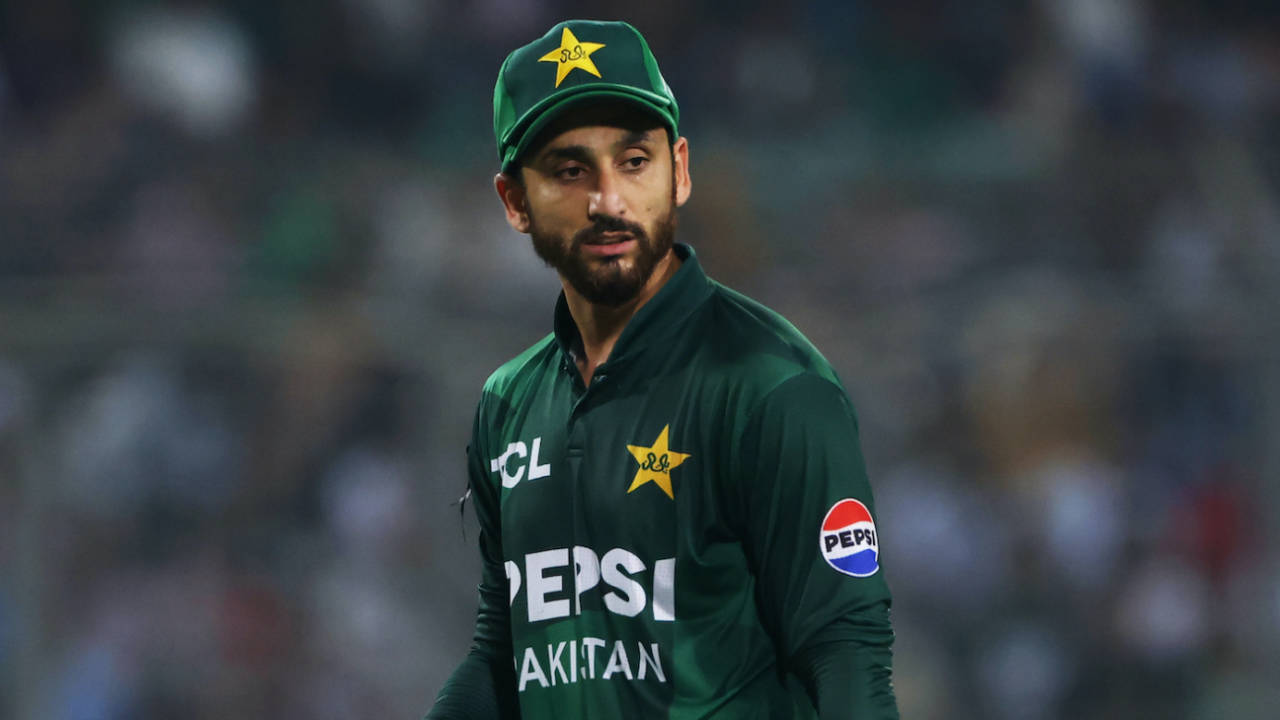Pakistan and
Afghanistan had initially planned a three-game T20I series to get some practice in ahead of the
Asia Cup next month. That dry run has become even more faithful to conditions at the Asia Cup now that the series is being played in the UAE itself. The hosts, themselves a participant at the tournament, also join, making it a tri-nation series that in the past may just have looked like one group of an Asia Cup.
Beyond its value as match practice for the Asia Cup, the significance of this tournament is limited, especially in the case of Afghanistan and Pakistan. The two sides are in different groups at that tournament, which takes place in Abu Dhabi and Dubai and not Sharjah, where all games for the tri-series will be held.
The mood music around Pakistan cricket at the moment is overwhelmingly negative, but they will go into this tri-series as favourites. They're set to continue on the path of progressive, high-intent T20 batting that has characterised their approach over the last three T20I series under new white-ball coach
Mike Hesson.
What Pakistan do about their bowling line-up, though, is more intriguing. Up till now under Hesson, Pakistan have - for better or worse - showcased a clear preference for allrounders over specialist bowlers in a bid to lengthen their batting line-up. It has meant anywhere between five to eight overs from non-specialists.
That has worked for the most part in high-scoring contests where weaker opposition can essentially be batted out of the game; Pakistan won
comfortably at home against Bangladesh, as well as two of the three games
against West Indies in Florida. On slower, lower wickets where par scores range below 150, though, things have proven tricky, something Bangladesh exploited effectively in a
2-1 series defeat in July. With the surfaces in the UAE more likely to resemble those rather than anything seen at Gaddafi or Fort Lauderdale, how flexible Pakistan are with that strategy may go a long way to determining the kind of tournament they have.
Afghanistan appear particularly well-suited to exploiting this with a line-up whose batting explosiveness does not come at the expense of a quality bowling attack, particularly in the spin department. If the wickets offer slow-bowling assistance,
Mohammad Nabi,
Rashid Khan,
Mujeeb Ur Rahman and
Noor Ahmad are all well positioned to capitalise, with genuine allrounders, top-order attackers and fast bowlers spread throughout the squad.
However, despite significant T20 pedigree and experience, there is a touch of the unknown about Afghanistan. They haven't played a T20I all year, and even though their star players ply their trades in multiple leagues around the world, there is never a guarantee that translates to instant synchronisation within a national side. This tri-series serves as a useful lubricator to ensure all systems run smoothly at the Asia Cup, where they are in the harder of the two groups alongside Bangladesh and Sri Lanka.
For
UAE, the series is the perfect preparation ahead of their biggest tournament of the year. They have played their fair share of T20 cricket this year, and shown they can compete with the bigger teams in the format, coming from behind to beat Bangladesh
2-1 in May. The multi-team
Pearl of Africa series in Entebbe was perhaps less impressive despite a second-placed finish, soured by two losses to the home side Uganda.
Their captain and opener
Muhammad Waseem is their talisman and the one clear standout player in the side; he's the
leading run-scorer this year as well as one of the more explosive batters with a strike rate in excess of 155. Lower down the order,
Asif Khan betters that with a superior average as well as a strike rate of 162.50 this year. But lack of firepower elsewhere, particularly for fellow opener
Muhammad Zohaib, means sustaining momentum through an innings is likely to be a challenge. Power-hitting wicketkeeper batter
Usman Khan, who was lured back from the UAE by Pakistan last year, would have been a handy addition.
In slower conditions, left-arm orthodox spinner
Haider Ali and wristspinner
Zuhaib Zubair are the home side's best hopes at strangling an opposition. Haider was instrumental in the series decider at this very ground against Bangladesh, figures of
4-1-7-3 keeping Bangladesh to a low enough target for batters like Asif to gun down. It was followed up by wickets in Entebbe; any path to victory must have Haider sustaining those performances.
This tri-series is destined to be remembered only in the context of what happens at the Asia Cup, but Sharjah has found a way of embedding itself in cricketing lore and staying there. The next week may fan those flames a while longer.


